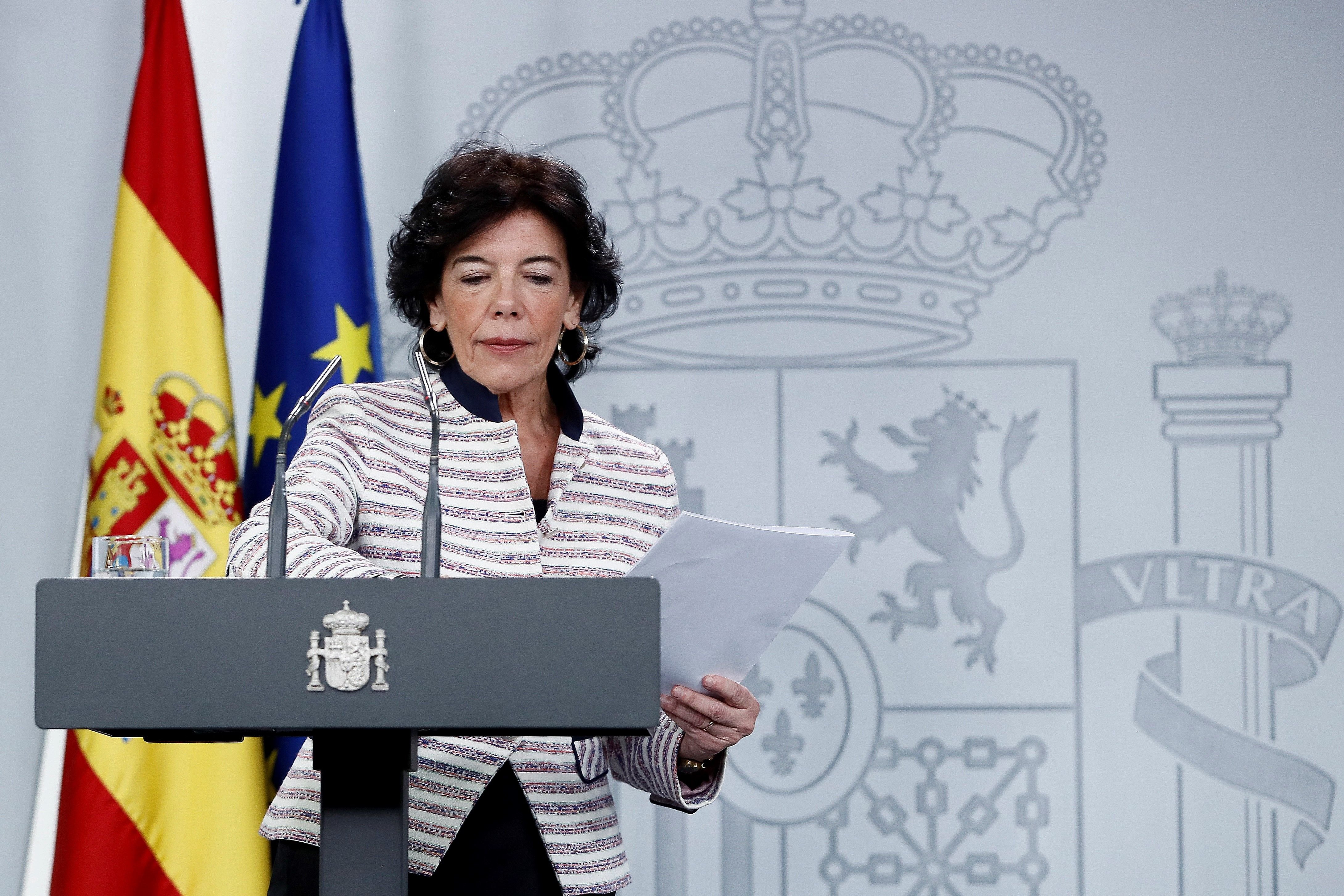It didn't take the Spanish government even two hours to reply to the ultimatum from Catalan president Quim Torra calling to negotiate self-determination for Catalonia. "Self-government and not independence", was the summary from the central government's spokesperson, Isabel Celaá, in a last-minute press conference. In doing so, Pedro Sánchez's executive rejects any possibility of a referendum agreed between the governments, even though that could mean they lose the support of pro-independence Catalan parties ERC and PDeCAT in the Spanish Congress, essential for guaranteeing the majority keeping them in power.
Torra had given Sánchez until November to provide a "clear and concrete" proposal if he wanted to continue enjoying their support in the Congress. "This government doesn't accept ultimatums", responded Celaá, who insisted that Torra "already knows what [Sánchez's] position is": "Law and dialogue to maintain coexistence".
"Torra is wrong again", the minister said, accusing the Catalan president of having "spurred radicals against the Mossos", referring to the Catalan police. The spokesperson warned that "the path isn't radicalism or threats" and called for "distension and calm".
"Gestures abound and responsibility is lacking"
For the Spanish government, "gestures abound and responsibility is lacking" from their Catalan counterparts, whilst they are "showing with deeds the intention to build bridges and create harmony". "Torra has to open a dialogue between Catalans on self-government", says Celaá, who says that "this is the proposal which unites [them], not independence".
Asked about the possibility of an early election, Celaá said that Sánchez "will remain determined in his government's efforts". This goes against comments by the prime minister himself in an interview last week that, if independence supporters prioritise confrontation, it would lead to an election. As for article 155 of the Constitution, the one used to intervene in Catalonia last year, the spokesperson said that it won't be used again "unless there's a clear reason to, something which hasn't yet happened".

